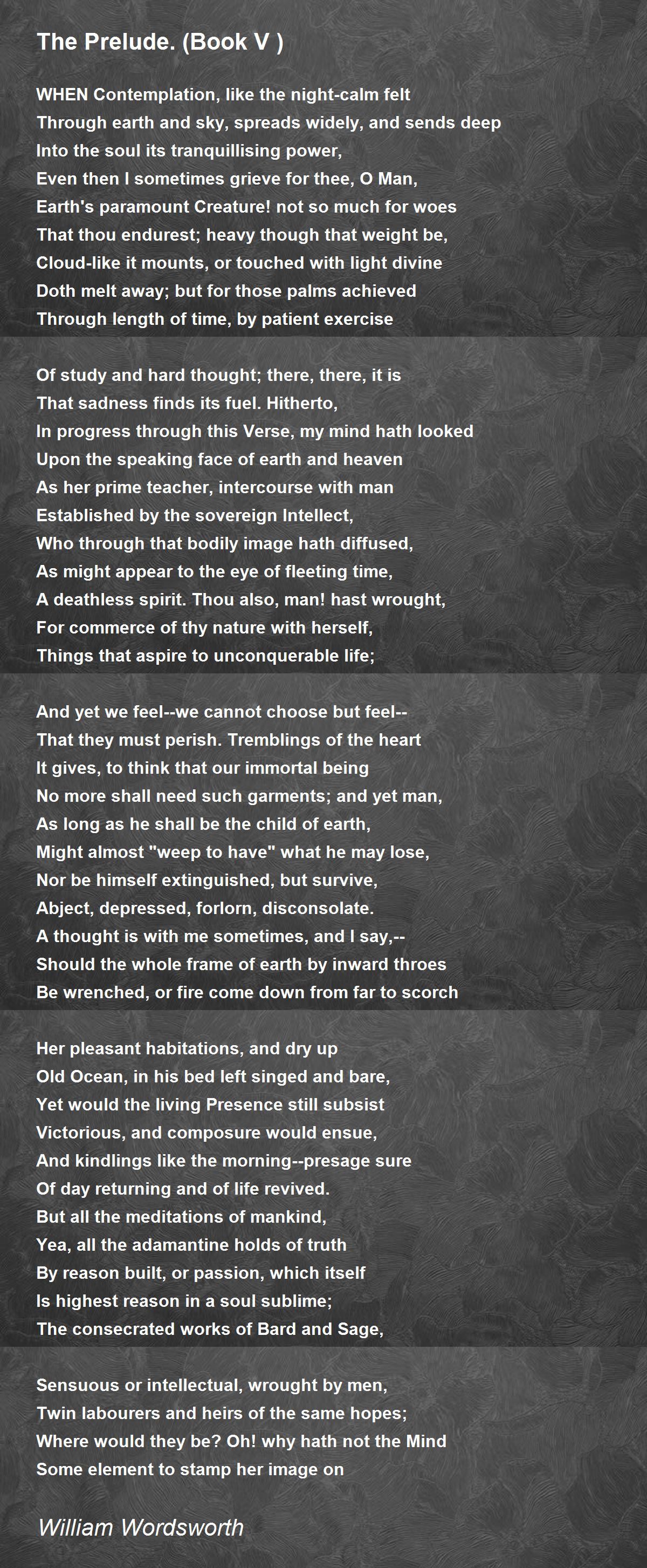

Coleridge in Biographia Literaria (1817) recalled that he was to write on ‘persons and characters supernatural’, while Wordsworth would concentrate on subjects from ‘ordinary life’, giving ‘the charm of novelty to things of every day’ and showing ‘the loveliness and the wonders of the world before us. In the aging memories of the one-time collaborators on Lyrical Ballads, the 1798 volume had a straightforward division of labour. The change is from seeing Lyrical Ballads as Coleridge's wife Sara early on described it - 'laughed at and disliked by all with very few excepted' - to what is the current critical consensus: 'Historically considered, it remains the most important volume of verse in English since the Renaissance, for it began modern poetry, the poetry of the growing inner self.' Wordsworth's achievement is all the more remarkable because most of the chief poems published in Lyrical Ballads (17) and Poems, in Two Volumes (1807) came from a very few bursts of activity, first at Alfoxden in Somerset, then at Goslar in Germany, and eventually at Grasmere. In the ensuing decade,Wordsworth, the man with the 'nothing name', wrote many of the poems that for later generations established him as the principal poet of his age.

The truth is that no one can decide the correct way to grieve or the correct way to remember loved ones.'Wordsworth's name is nothing - to a large number of persons mine stinks', wrote Samuel Taylor Coleridge in 1798, urging publisher Joseph Cottle to issue the poets' co-authored Lyrical Ballads anonymously ( STCL i 412). In my opinion, the fact that this child is willing to reminisce about old times and sit by her siblings graves shows maturity and a deeper meaning in life. The child has every right to say that although her family only has five children living, it doesn’t mean that there aren’t still seven in her family. The automatic assumption that this child does not comprehend the realities of death is not a fair one to make and Wordsworth choice of language for the man allows for readers to disagree with his view. Perhaps singing to them brings her peace and comfort in knowing that they are okay and she will be too. Perhaps these actions help her to remember the good times and help keep her grounded. There is no correct way to grieve the loss of loved ones and his outright denial of the child’s family consisting of seven children is unfair to her. The man fails to see that even though this behavior appears odd to him, her way of coping with the loss of her siblings might be that she does these things. My stockings there I often knit, My ‘kerchief there I hem And there upon the ground I sit, I sit and sing to them.’ In this excerpt, the young Maid is trying to show the gentleman that even though her siblings have passed away doesn’t mean they are forgotten.

Although the man is trying to teach the young girl a lesson, it appears he receives a lesson of his own in return.Įarlier in the poem Wordsworth writes, “Their graves are green, they may be seen,’ The little Maid replied, ‘Twelve steps or more from my mother’s door, And they are side by side. His lack of appreciation for her feelings and emotions allows the reader to side with the child in the dispute over the number of children in her family. ‘If they are two in Heaven?’ The little Maiden did reply, ‘O Master! We are seven.’ ‘But they are dead those two are dead! Their spirits are in heaven!’ ‘Twas throwing words away, for still The little Maid would have her will, And said, ‘Nay we are seven.” The gentleman is trying to show the young girl that because two of her siblings have passed away, now her family only consists of five children. Wordsworth writes, “How many are you then,’ said I. Woodworth allows the reader to sympathize with the young child because in her eyes the family has and always will consist of seven children bonded together by blood. Yet, the young child is trying to tell him something by reiterating to him that no matter whether alive or dead, these deceased siblings are still her brothers and sisters. The debate within the poem centers upon the perception of the older gentleman that the young child does not understand death, nor does she accept it. Wordworth’s poetic debate between a young Maid and an older gentlemen.


 0 kommentar(er)
0 kommentar(er)
